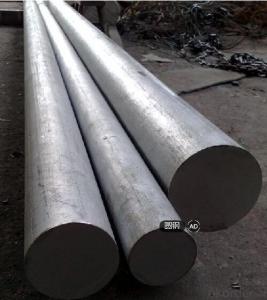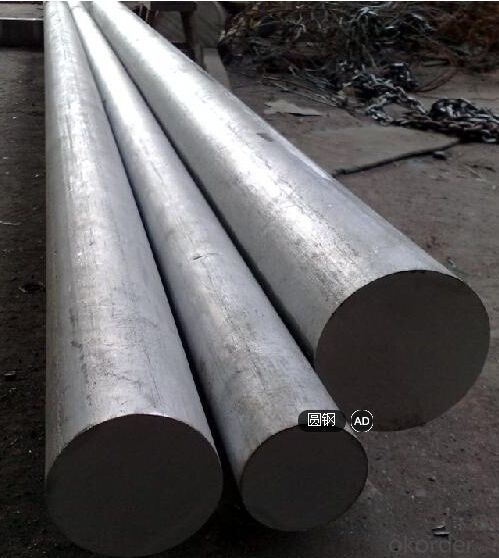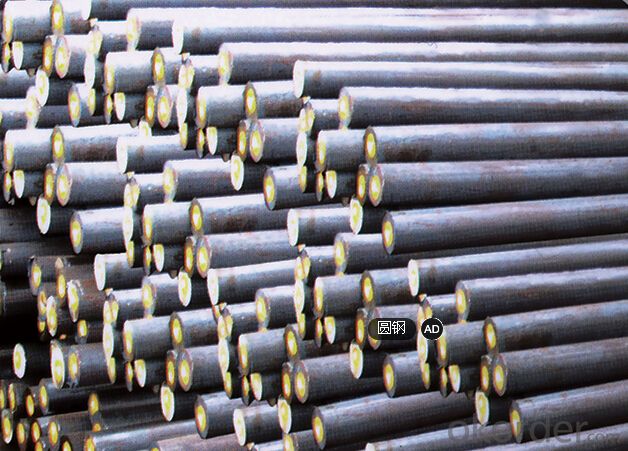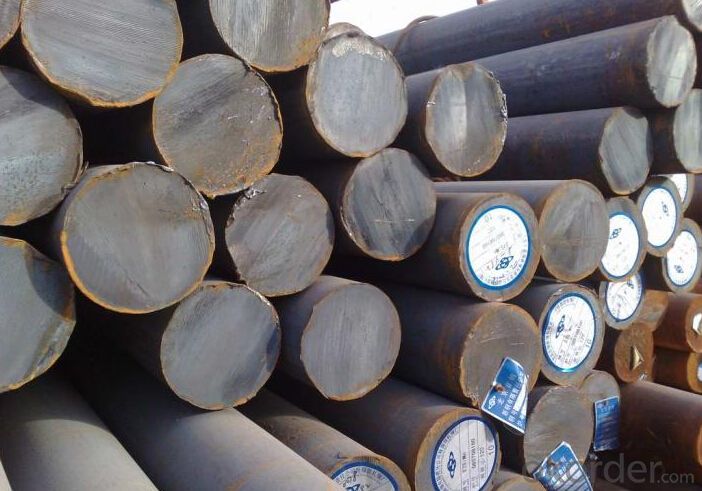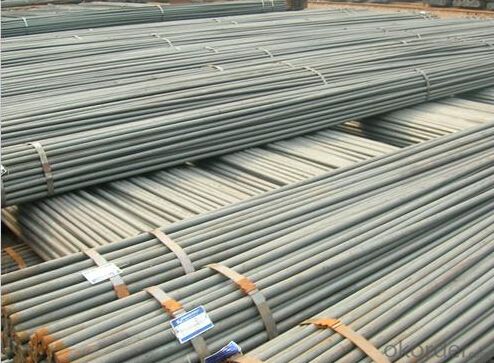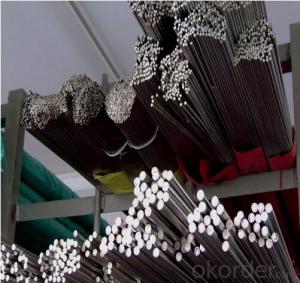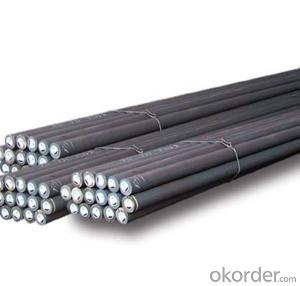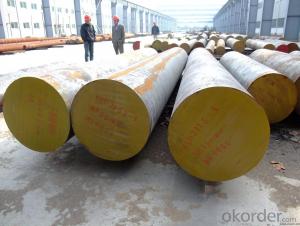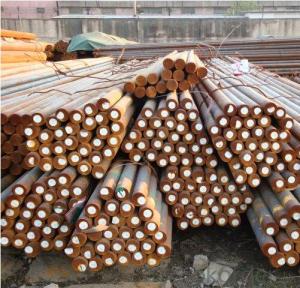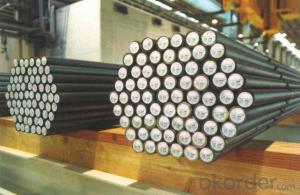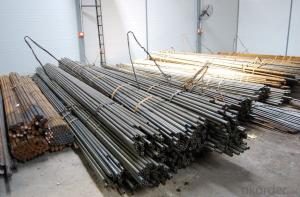SKD11 Die Steel Bar/DIN.1.2379 Steel Round Bar
- Loading Port:
- Qingdao
- Payment Terms:
- TT OR LC
- Min Order Qty:
- 5 m.t.
- Supply Capability:
- 100000 m.t./month
OKorder Service Pledge
Quality Product, Order Online Tracking, Timely Delivery
OKorder Financial Service
Credit Rating, Credit Services, Credit Purchasing
You Might Also Like
Specification
Type:
Carbon Steel,Spring Steel,Bearing Steel,Gear Steel,Deformed Steel,Stainless Steel,Alloy Steel
Shape:
Steel Coil,Steel Sheet,Steel Wire Rod,Steel Flat Bar,Steel Square Bar,Steel Angle,Steel Round Bar,Steel Billets
Technique:
Hot Rolled,Cold Rolled,Cold Drawn,ERW,Forged,Saw,Extruded,EFW,Spring
Surface Treatment:
Galvanized,Coated,Copper Coated,Color Coated,Oiled,Dry,Chromed Passivation,Polished,Bright,Black,PVDF Coated
Certification:
ISO,SGS,BV,IBR,RoHS,CE,API,BSI,UL
Thickness:
10-900MM
Width:
10-900MM
Length:
6-12m
Outer Diameter:
10-900MM
Net Weight:
100kg
Packaging:
seaworthy packaging
SKD11 Die Steel Bar/DIN.1.2379 Steel Round Bar
Detailed Information of SKD11 Die Steel Bar/DIN.1.2379 Steel Round Bar
| Name | Steel Round Bar |
| Shape | Round Bar/Square Bar/Flat Bar/Plate/Wire |
| Standard | GB/ASTM/SAE/AISI/DIN/JIS/EN/BS |
| Surface Treatment: | Black/Peeling/Polished/Machined |
| Delivery Condition: | Hot Rolled or Forged/Peeled or Black Surface |
| Test | SGS/UT 100% Elements Testing |
| Certificate: | ISO/Mill Certificate |
| Service: | 24 hours online service / |
| more than 20 years trading and manufacture | |
| Quality Assurance: | the third party inspection, such as SGS, BV, TUV…etc. is acceptable |
| Packaging Details: | Seaworthy Packaging or as per customer's packing instruction |
Product Overviews of SKD11 Die Steel Bar/DIN.1.2379 Steel Round Bar
| Product Name | Typical Grades | Diameter(mm) | Standard Adopted |
| Carbon Steel | 20 (1020/S20C/C22) | ||
| 40 (1040/S40C/C40) | Ø16-Ø300 | ||
| 45 (1045/S45C/C45) | |||
| Bearing Steel | GCr9 (51100/SUJ1) | ||
| GCr15 (52100/SUJ2/100Gr6) | Ø12-Ø250 | ||
| GCr9SiMn (A485-Gr.1/SUJ3) | GB/SAE/ | ||
| Cr-Mo Steel | 20Cr (5120/SCr420H/20Cr4) | JIS/DIN | |
| 40Cr (5140/SCr440/41Cr4) | Ø12-Ø250 | ||
| 42CrMo(4140/SCM440/42CrMo4) | |||
| Gear Steel | 20CrNiMo | ||
| 20CrMn(5115/SMnC420/20MnCr5) | Ø16-Ø600 | ||
| 20CrNiMo(8620/SNCM220/20CrMiMo2) |
Company Introduction of SKD11 Die Steel Bar/DIN.1.2379 Steel Round Bar
CNBM International Corporation is the most import and export platform of CNBM group(China National Building Material Group Corporation) ,which is a state-owned enterprise, ranked in 270th of Fortune Global 500 in 2015.
With its advantages, CNBM International are mainly concentrate on Cement, Glass, Iron and Steel, Ceramics industries and devotes herself for supplying high quality series of refractories as well as technical consultancies and logistics solution.
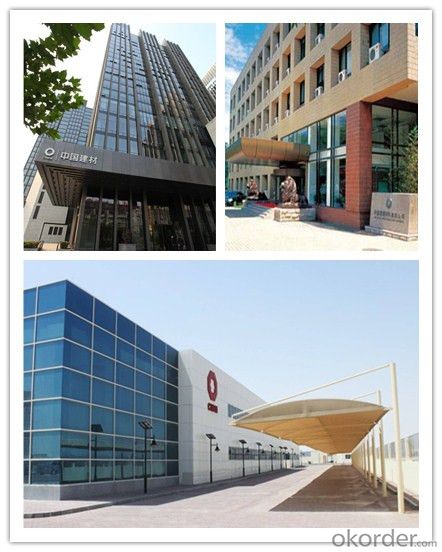
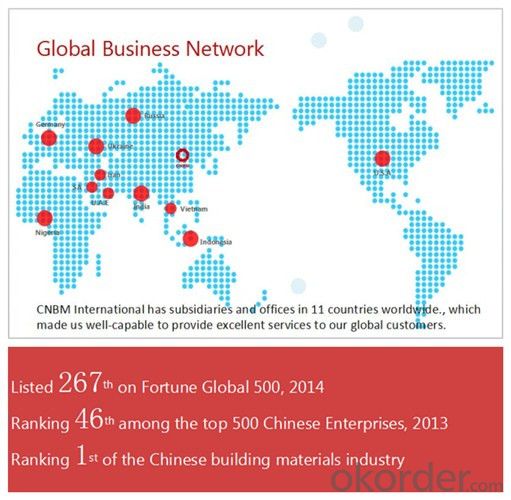
| After-sale service | l CNBM provides the services and support you need for every step of our cooperation. We’re the business partners you can trust; you can relax and get on with doing business. |
| l For any problem, please kindly contact us at any your convenient time, we’ll reply you in our first priority within 24 hours | |
| Advantages | l Industry experience over 20 years. |
| l Shipment of goods -More than 70 countries worldwide. | |
| l The most convenient transport and prompt delivery. | |
| l Competitive price with best service. | |
| l High technical production line with top quality products. | |
| l High reputation based on best quality products. | |
Packaging & Delivery of SKD11 Die Steel Bar/DIN.1.2379 Steel Round Bar
| Packaging Detail | Sea worthy packing /as per customer's packing instruction |
| Delivery Detail | 15 ~ 40 days after receiving the deposit |
Products Show
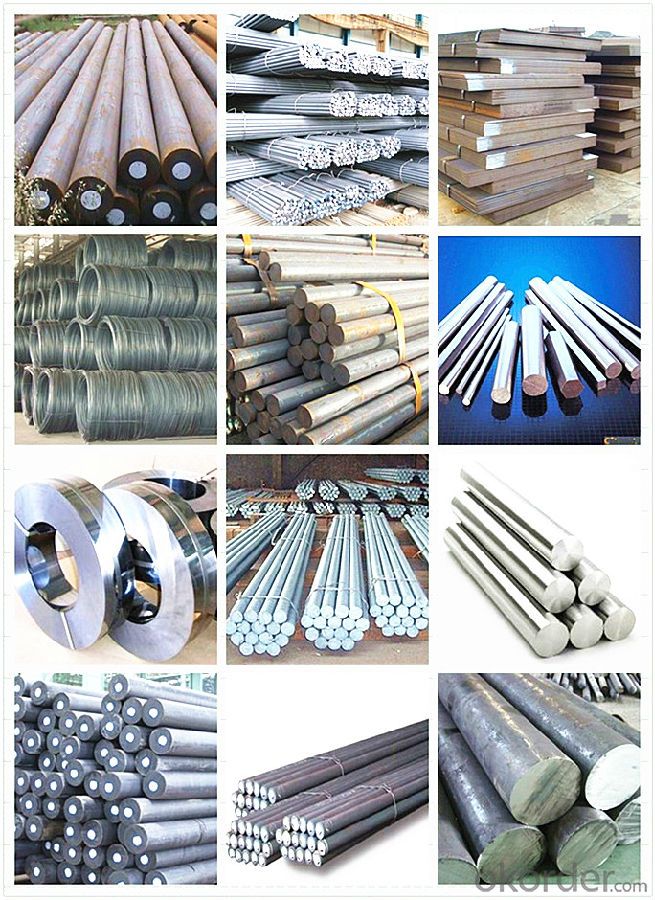
FAQ:
| Are you a trading company or manufacturer? | Manufacturer |
| What’s the MOQ? | 1000m2 |
| What’s your delivery time? | 15-20 days after downpayment received |
| Do you Accept OEM service? | Yes |
| what’s your delivery terms? | FOB/CFR/CIF |
| What's the Payment Terms? | 30% as deposit,70% before shipment by T/T |
| Western Union acceptable for small amount. | |
| L/C acceptable for large amount. | |
| Scrow ,Paybal,Alipay are also ok | |
| Why choose us? | Chose happens because of quality, then price, We can give you both. Additionally, we can also offer professional products inquiry, products knowledge train (for agents), smooth goods delivery, excellent customer solution proposals. |
| What's your available port of Shipment? | Main Port, China |
| What’s your featured services? | Our service formula: good quality+ good price+ good service=customer's trust |
| Where are your Market? | Covering more than 160 countries in the world |
- Q: How does special steel perform in cryogenic ductility?
- Special steel generally performs well in cryogenic ductility. Cryogenic ductility refers to the ability of a material to maintain its strength and flexibility at extremely low temperatures. Special steels are often specifically engineered to withstand harsh conditions, including cryogenic temperatures, making them suitable for use in applications such as liquefied natural gas (LNG) storage tanks, aerospace components, and superconductors. One of the main reasons special steel excels in cryogenic ductility is its composition. Special steels are typically alloyed with elements such as nickel, chromium, and molybdenum, which enhance their mechanical properties and resistance to low temperatures. These alloying elements provide special steel with increased strength, toughness, and resistance to brittle fracture, even in extremely cold environments. Furthermore, special steels undergo rigorous testing and quality control measures to ensure their performance in cryogenic conditions. This includes testing for parameters such as impact toughness, fracture toughness, and notch toughness, which are crucial for evaluating a material's ability to resist brittle failure at low temperatures. In addition to its composition and testing, the manufacturing processes used for special steel also contribute to its excellent cryogenic ductility. Special steels are often produced using methods like vacuum induction melting and controlled cooling, which help eliminate impurities and improve the material's microstructure. This refined microstructure enhances the steel's ductility, allowing it to maintain its mechanical properties even at cryogenic temperatures. Overall, special steel demonstrates exceptional performance in cryogenic ductility due to its carefully designed composition, stringent testing, and advanced manufacturing processes. These factors make it a reliable and preferred choice for various industries that require materials to withstand extreme cold conditions while maintaining their strength and flexibility.
- Q: What is the impact of manganese in special steel alloys?
- Manganese plays a crucial role in special steel alloys as it enhances the strength, hardness, and overall performance of the steel. It acts as a deoxidizer, removing impurities and improving the cleanliness of the metal. Additionally, manganese helps in grain refinement, reducing the risk of brittleness and improving toughness. It also aids in improving the workability and weldability of the steel, making it easier to shape and join. Overall, manganese significantly contributes to the high-quality and durability of special steel alloys.
- Q: How is duplex stainless steel used in the oil and gas industry?
- Duplex stainless steel is widely used in the oil and gas industry due to its exceptional corrosion resistance, high strength, and good weldability. It is commonly used in various applications including offshore platforms, subsea pipelines, oil and gas refineries, and chemical processing plants. The duplex stainless steel's ability to withstand harsh environments, resist corrosion from corrosive fluids, and perform under high pressure and temperature conditions makes it a preferred material for critical components and equipment in the oil and gas sector.
- Q: Can special steel be used for making defense industry components?
- Yes, special steel can be used for making defense industry components. Special steel alloys possess superior strength, durability, and resistance to wear, making them ideal for manufacturing critical defense components that require high performance under extreme conditions. Additionally, special steel can be tailored to meet various specific requirements of defense applications, such as ballistic protection, corrosion resistance, and heat resistance.
- Q: What are the factors that affect the mechanical properties of special steel?
- The mechanical properties of special steel are influenced by several factors, including the chemical composition of the steel, the heat treatment process, the presence of impurities or alloying elements, the microstructure of the steel, and the manufacturing process used. Additionally, factors such as grain size, hardness, tensile strength, ductility, and toughness also play a significant role in determining the overall mechanical properties of special steel.
- Q: Can special steel be coated?
- Indeed, it is possible to coat special steel. Coating special steel yields numerous advantages such as resistance to corrosion, improved visual appeal, enhanced durability, and heightened functionality. Multiple coating materials and techniques are available for special steel, encompassing electroplating, hot-dip galvanizing, powder coating, and ceramic coating, among others. These coatings effectively safeguard the steel against environmental elements, chemical exposure, and normal wear and tear, thus extending its lifespan and preserving its performance. Moreover, coatings can be tailored to impart specific characteristics, such as non-stick surfaces, heat resistance, or anti-microbial properties, depending on the intended application of the special steel.
- Q: How is special steel graded?
- Special steel is graded based on various factors such as its chemical composition, mechanical properties, and intended application. The grading system provides a standardized classification that helps in identifying and selecting the appropriate type of steel for specific purposes. One common method of grading special steel is through the use of alphanumeric codes. These codes typically consist of a combination of letters and numbers that represent specific characteristics of the steel. For example, the American Iron and Steel Institute (AISI) uses a four-digit numbering system to grade different types of steel alloys. The first digit indicates the main alloying element, such as carbon or manganese, while the subsequent digits provide additional details about the composition and properties of the steel. In addition to the alphanumeric codes, special steel can also be graded based on its mechanical properties. This involves testing the steel's strength, hardness, toughness, and other performance indicators. The results of these tests are then used to assign a specific grade to the steel, which helps users determine its suitability for certain applications. International standards organizations, such as ASTM International and the International Organization for Standardization (ISO), provide guidelines and specifications for the grading of special steel based on these mechanical properties. Furthermore, the intended application of the special steel also plays a significant role in its grading. Certain industries, such as aerospace or automotive, have specific requirements for the materials they use. Therefore, special steel intended for these sectors is graded based on its ability to meet those requirements, such as corrosion resistance, heat resistance, or wear resistance. Special steel grades can also be classified based on their ability to withstand extreme conditions or perform specific functions, such as tool steels for cutting or forming operations. Overall, the grading of special steel involves considering its chemical composition, mechanical properties, and intended application. By utilizing standardized grading systems and specifications, manufacturers, engineers, and other users can easily identify and select the most suitable type of special steel for their specific needs.
- Q: How does special steel contribute to improving product performance in corrosive environments?
- Special steel contributes to improving product performance in corrosive environments by offering enhanced resistance against corrosion. The unique composition of special steel, which includes elements such as chromium, nickel, and molybdenum, provides a protective layer that prevents the material from being affected by corrosive elements present in the environment. This resistance to corrosion ensures that the product remains durable, reliable, and unaffected by rust or degradation, ultimately enhancing its performance and longevity in corrosive conditions.
- Q: How does special steel contribute to the automotive suspension industry?
- Special steel contributes to the automotive suspension industry by providing high strength and durability to suspension components. It allows for lighter and more efficient designs, improving handling, stability, and overall performance of vehicles. Special steel also enhances safety by increasing the ability to absorb and dampen shocks and vibrations, resulting in a smoother and more comfortable ride for passengers.
- Q: How does special steel contribute to the robotics industry?
- Special steel plays a crucial role in advancing the robotics industry in multiple ways. Firstly, special steel alloys possess exceptional mechanical properties, making them ideal for manufacturing various robotic components. These alloys can provide superior strength, durability, and resistance to wear and tear. As a result, robots built with special steel can operate efficiently and reliably in demanding environments, such as manufacturing plants or hazardous locations. Moreover, special steel alloys offer excellent heat resistance and thermal stability. This characteristic is particularly important in the robotics industry, as robots often generate significant heat during operations. Special steel components can withstand high temperatures without deforming or losing their structural integrity. This capability ensures that robots can operate at their optimal performance levels without the risk of mechanical failures caused by heat-related issues. Additionally, special steel's corrosion resistance is highly beneficial for the robotics industry. Robots are increasingly being deployed in diverse applications, including underwater exploration, chemical handling, and outdoor environments. In such cases, exposure to moisture, chemicals, or harsh weather conditions can lead to corrosion and degradation of robot parts. By utilizing special steel alloys, manufacturers can significantly extend the lifespan of robotic systems, reducing maintenance costs and enhancing their overall reliability. Furthermore, special steel's magnetic properties make it invaluable in the development of magnetic sensors and actuators used in robotics. These sensors enable robots to detect and interact with their surroundings, enhancing their autonomy and adaptability. Magnetic actuators, on the other hand, enable precise control and movement in robotic systems. Special steel's magnetic properties contribute to the efficiency, accuracy, and responsiveness of these components, enabling robots to execute complex tasks with precision. Overall, special steel plays an integral role in the robotics industry by providing the necessary materials for manufacturing robust, high-performance, and versatile robotic systems. From enhancing strength and durability to withstanding extreme conditions, special steel alloys contribute to the advancement of robotics by ensuring the reliability, efficiency, and functionality of these machines.
Send your message to us
SKD11 Die Steel Bar/DIN.1.2379 Steel Round Bar
- Loading Port:
- Qingdao
- Payment Terms:
- TT OR LC
- Min Order Qty:
- 5 m.t.
- Supply Capability:
- 100000 m.t./month
OKorder Service Pledge
Quality Product, Order Online Tracking, Timely Delivery
OKorder Financial Service
Credit Rating, Credit Services, Credit Purchasing
Similar products
Hot products
Hot Searches
Related keywords
